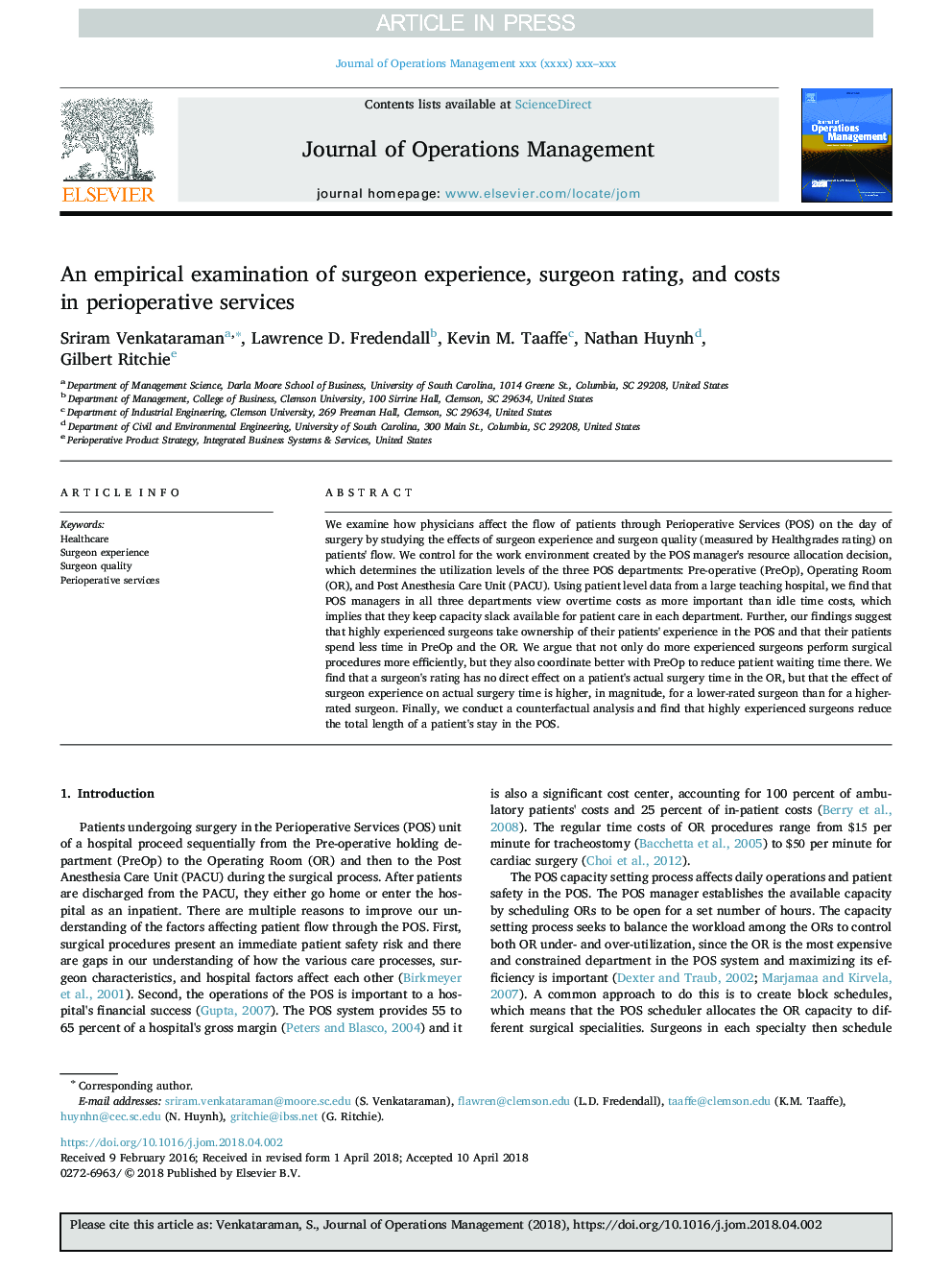| Article ID | Journal | Published Year | Pages | File Type |
|---|---|---|---|---|
| 8960917 | Journal of Operations Management | 2018 | 14 Pages |
Abstract
We examine how physicians affect the flow of patients through Perioperative Services (POS) on the day of surgery by studying the effects of surgeon experience and surgeon quality (measured by Healthgrades rating) on patients' flow. We control for the work environment created by the POS manager's resource allocation decision, which determines the utilization levels of the three POS departments: Pre-operative (PreOp), Operating Room (OR), and Post Anesthesia Care Unit (PACU). Using patient level data from a large teaching hospital, we find that POS managers in all three departments view overtime costs as more important than idle time costs, which implies that they keep capacity slack available for patient care in each department. Further, our findings suggest that highly experienced surgeons take ownership of their patients' experience in the POS and that their patients spend less time in PreOp and the OR. We argue that not only do more experienced surgeons perform surgical procedures more efficiently, but they also coordinate better with PreOp to reduce patient waiting time there. We find that a surgeon's rating has no direct effect on a patient's actual surgery time in the OR, but that the effect of surgeon experience on actual surgery time is higher, in magnitude, for a lower-rated surgeon than for a higher-rated surgeon. Finally, we conduct a counterfactual analysis and find that highly experienced surgeons reduce the total length of a patient's stay in the POS.
Keywords
Related Topics
Physical Sciences and Engineering
Engineering
Industrial and Manufacturing Engineering
Authors
Sriram Venkataraman, Lawrence D. Fredendall, Kevin M. Taaffe, Nathan Huynh, Gilbert Ritchie,
